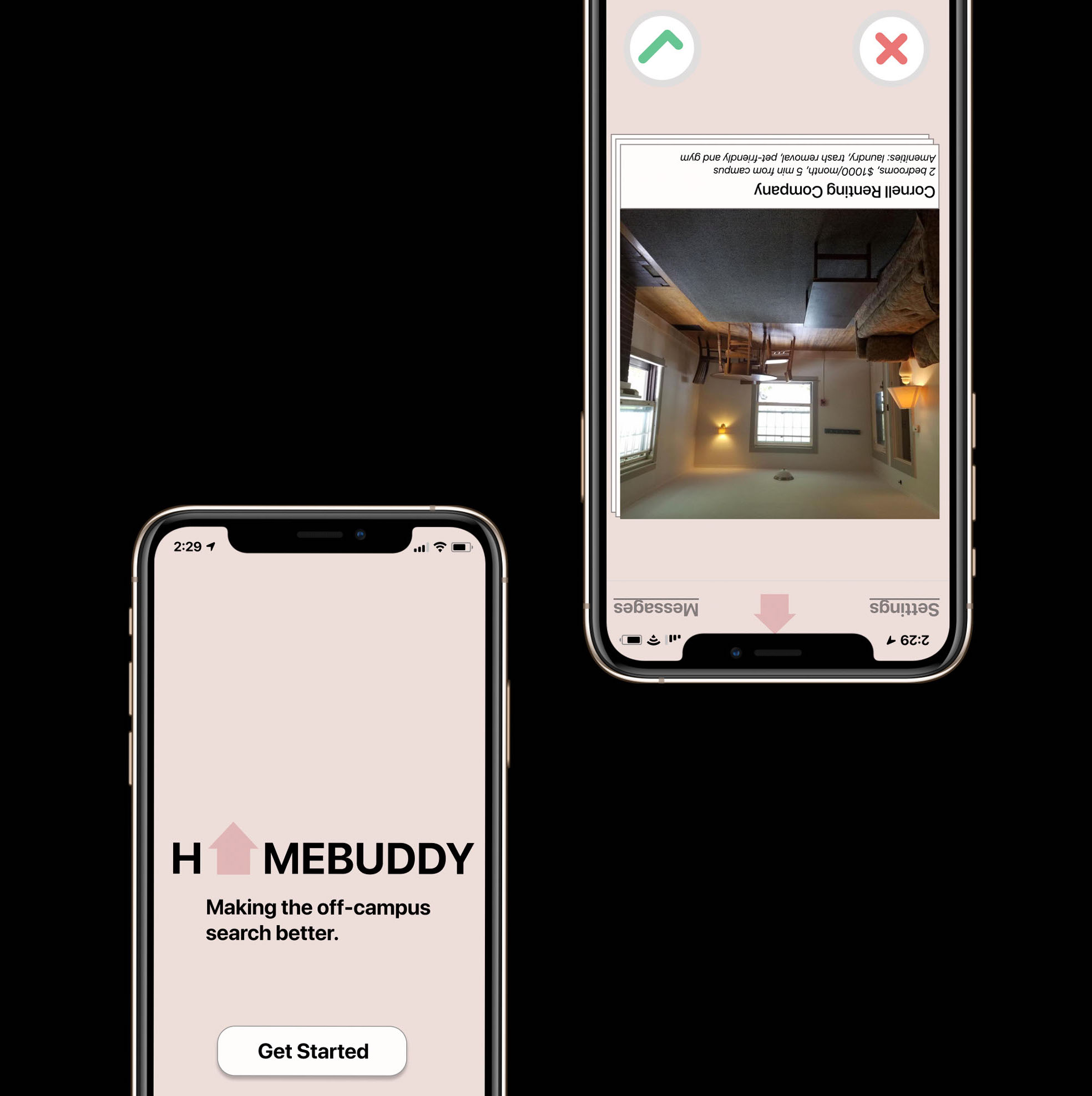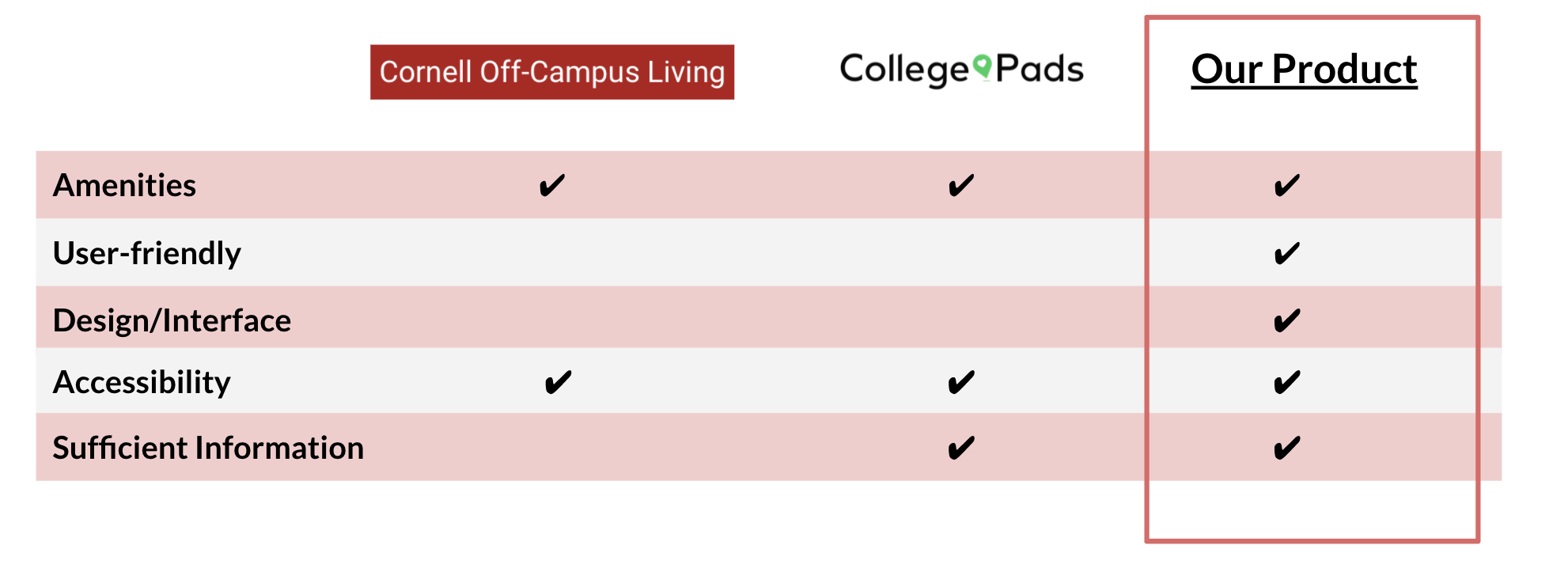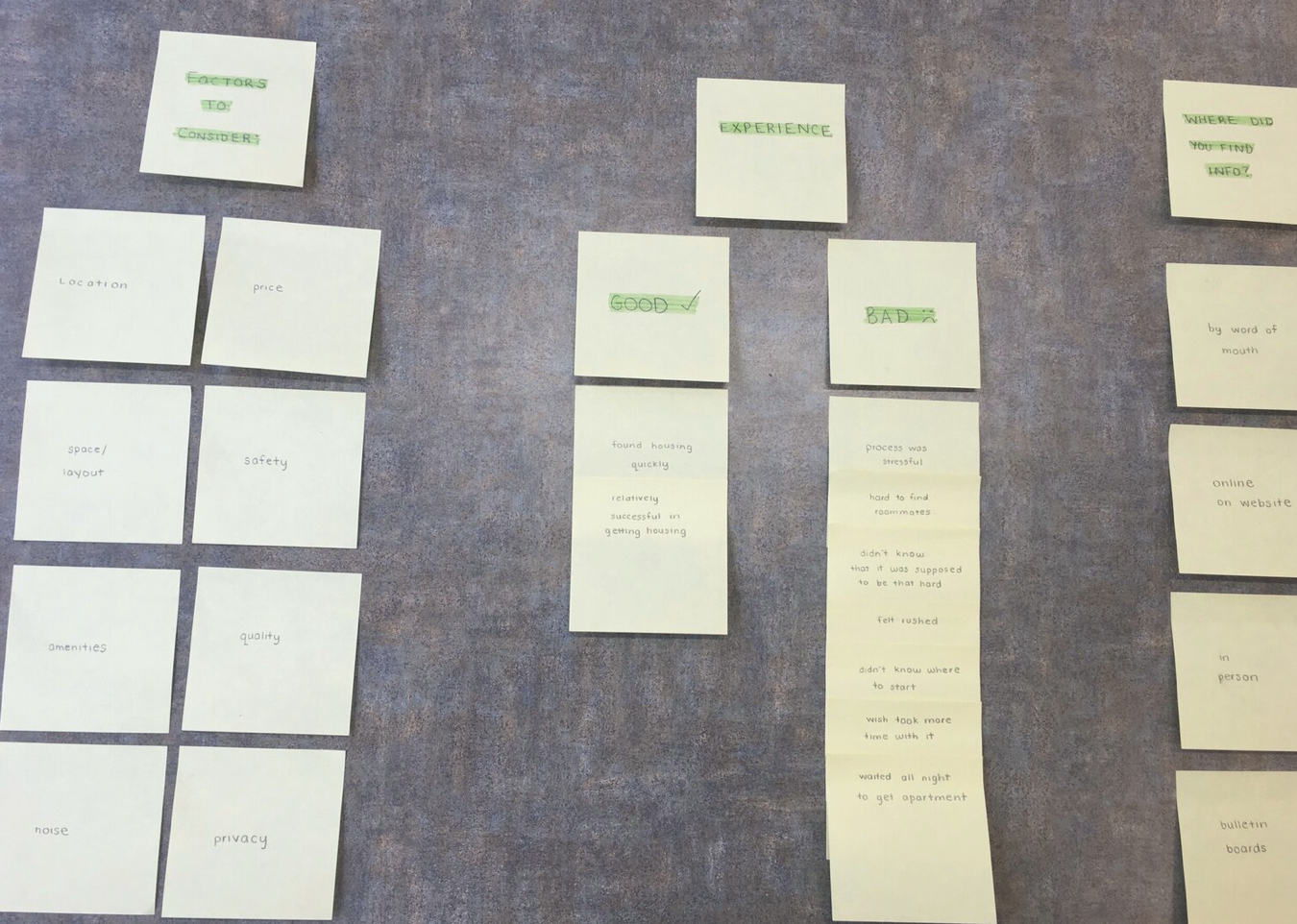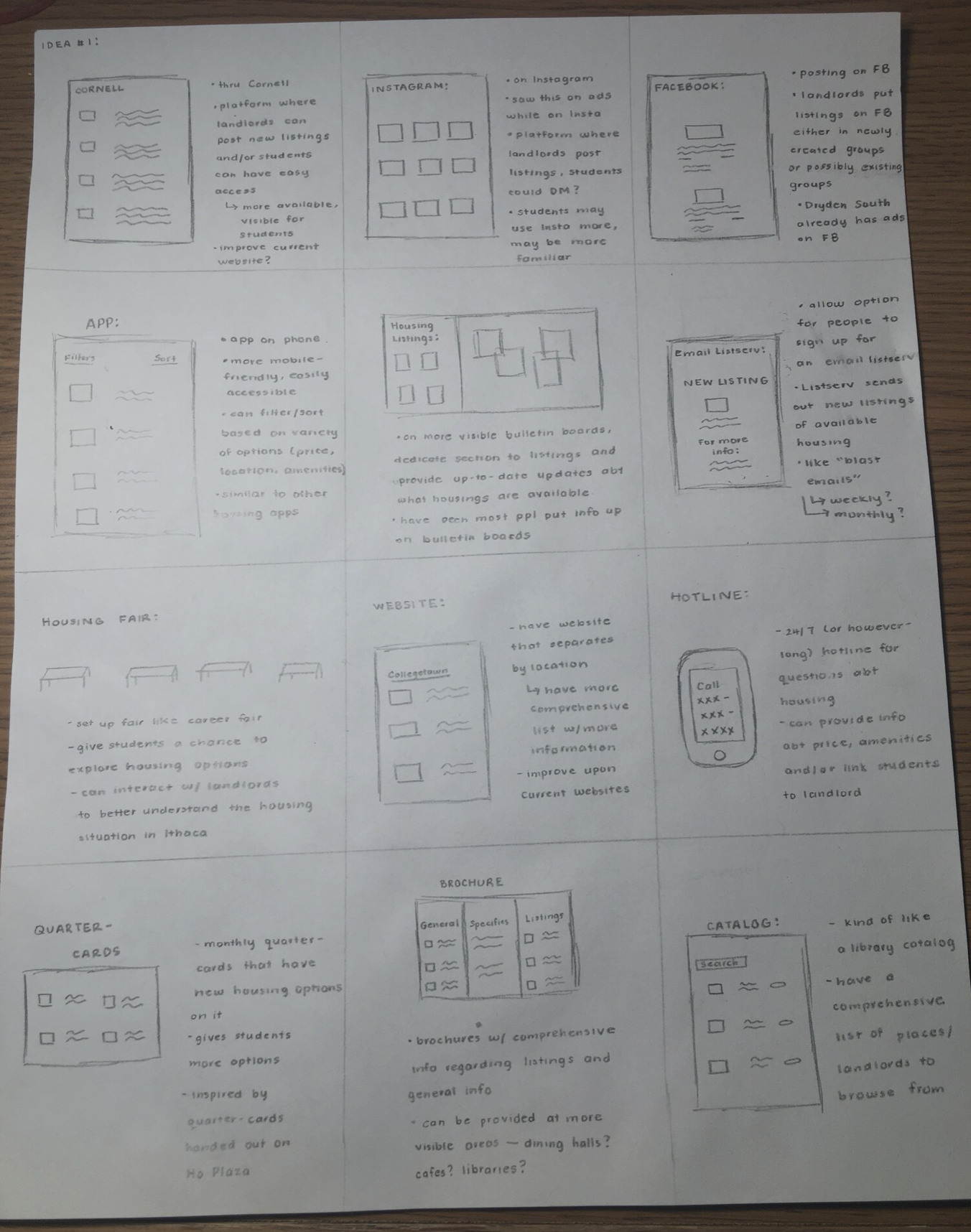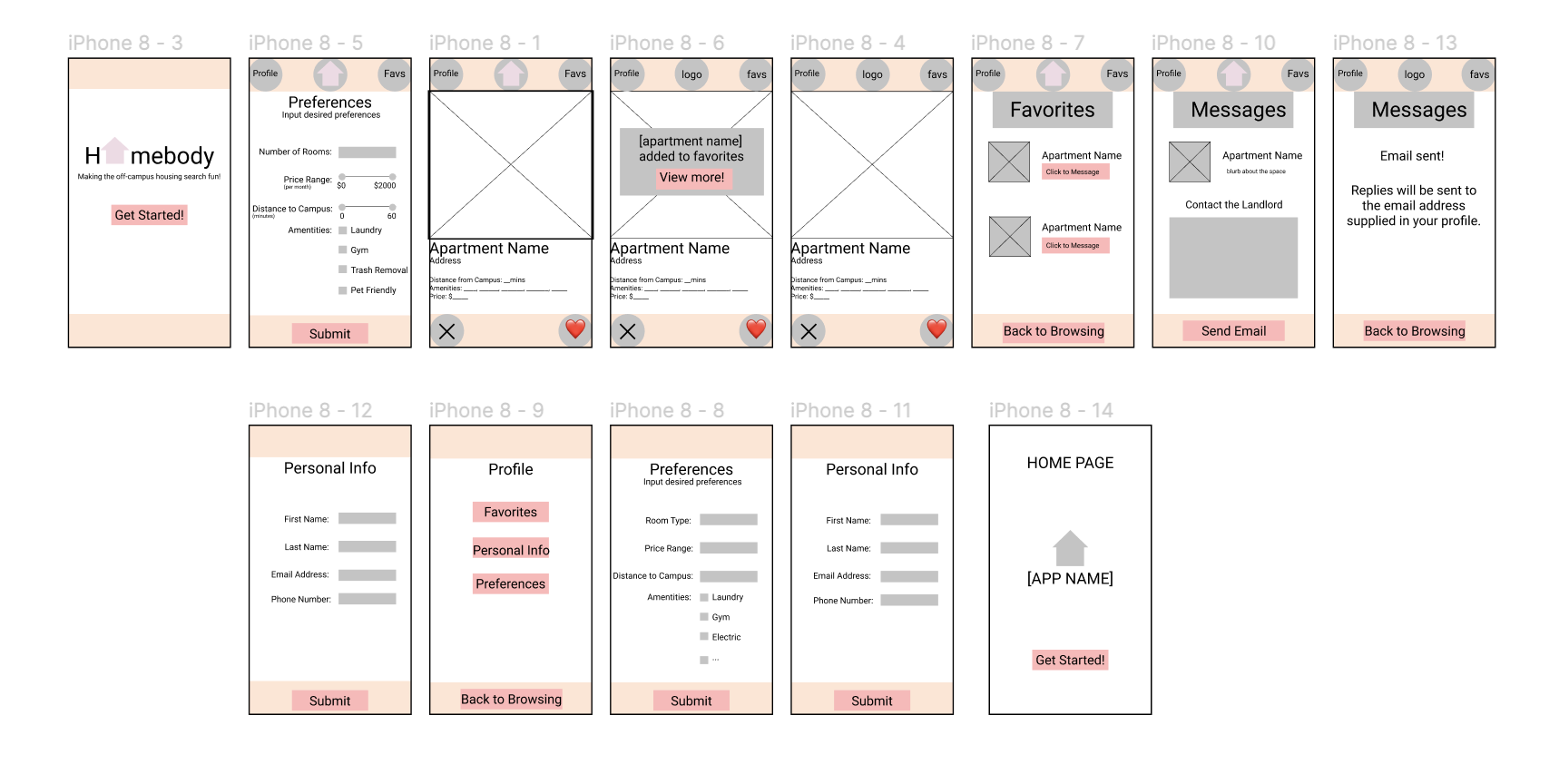Housing? A Stressful Conversation
At Cornell, it is a known fact that every fall, in August or September, the task of finding off-campus housing preoccupies a majority of the student body. Whether it be lining up in front of rental offices or chasing down landlords, Cornell students have voiced their complaints and frustrations with regards to finding off-campus housing options.
Problem Space
From talking to users who experienced the hunt for off-campus housing, we found some key insights:
- users cannot find a comprehensive platform that lists all the off-campus housing options
- it is difficult for users to coordinate correspondence with landlords via email and phone
- the process from looking at options to signing the lease is long and tedious
Target Audience
When exploring what subset of the Cornell population is considering off-campus housing, we found 3 general groups:
- sophomores - because of convenience and greater flexibility in meal plans and options
- juniors/seniors - because of unguaranteed on-campus housing options
- graduate students - different consumer segment, accomodations differ in terms of location, pricing, distance, etc.
Thus, we decided to focus on undergraduate students as our main target audience.
Market Analysis
What is the market size?
- Total undergraduate enrollment: 15,182 students
- Total sophomores, juniors, seniors = 15,182 - 3,325 = 11,857 students
Taking into account that not all sophomores, juniors, and seniors live off campus, we can estimate the market size to be around ~9,500 students.
Competitors
We found some existing websites included: Cornell Off-Campus Living and College Pads
